Seasonal Home Maintenance You Need To Do To Maintain Your Home’s Value
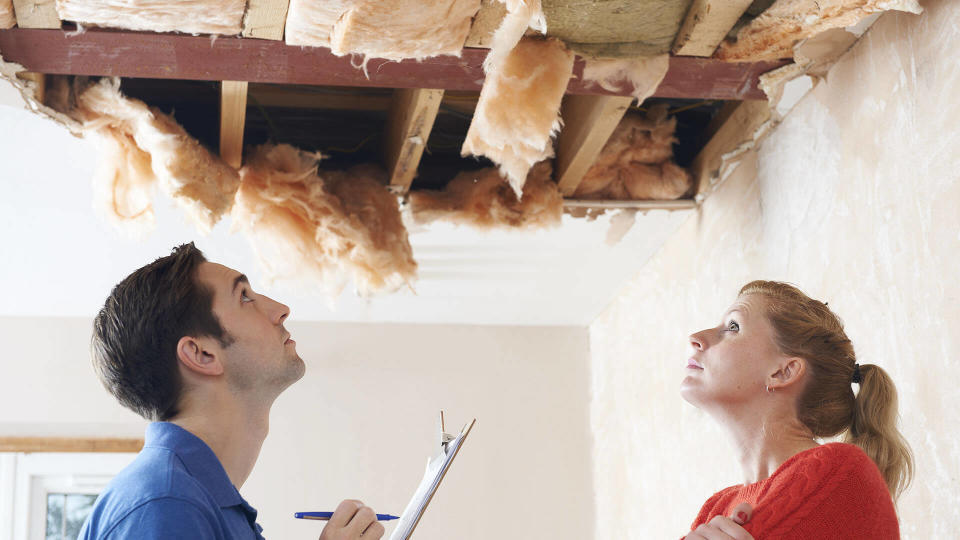
When the weather is good it’s easy to forget about the abuses that winter can bring to a house, depending on region and weather conditions. From heavy rain to snow and high winds, your house can take a beating in typical weather.
Check Out: 7 Easy Home Renovations for $5,000 or Less
Find Out: 20 Home Renovations That Will Hurt Your Home’s Value
In order to not only keep yourself comfortable but maintain the value of your home, here are eight maintenance tips that can protect what is likely the biggest investment you’ll ever make, along with the average cost of each.
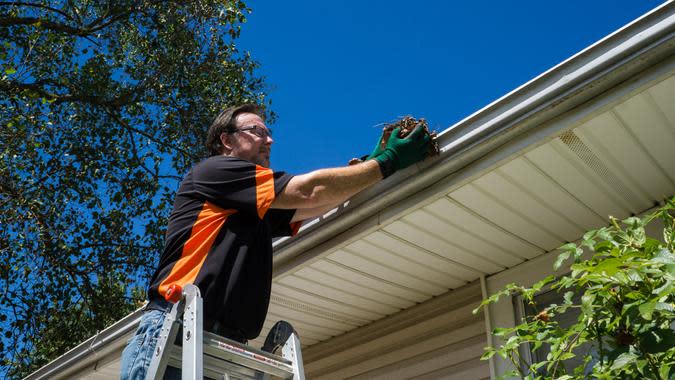
Clean Out Gutters
The gutters on your roof are an often-forgotten area of maintenance, until winter hits and poor drainage leads to leaks or other roof damage.
“You want your gutters to properly work any time of the year,” said Andrew Barker, founder of HomeownerCosts, an online publication. “Make sure they’re not clogged or they’ll end up flooding and damaging your interior and exterior.”
According to Forbes, the average cost of gutter cleaning is 80 cents per linear foot, or about $160 for a house with 200 feet of gutters.
Don’t Break the Bank: 30 Ways To Upgrade Your Home Without Blowing Your Budget
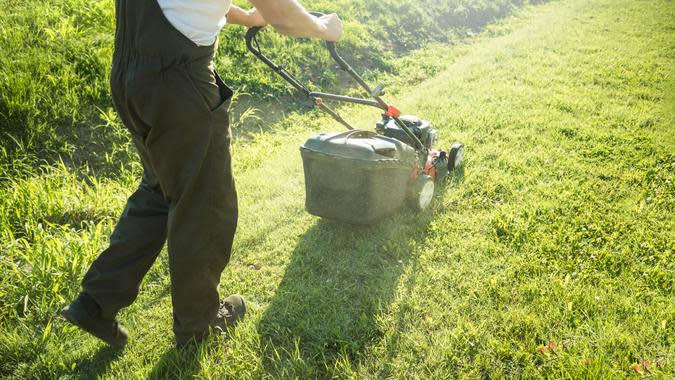
Lawn Maintenance
Don’t forget to keep up with your landscaping over the winter months. If you live in an area that doesn’t get snow, “Keep mowing,” said Joe Raboine, a former contractor and director of residential hardscapes with Belgard. “Many homeowners assign a final date for mowing and that is a big mistake. The cool season grasses that are the mainstay of lawns like bluegrass and fescue prefer cooler climates and will continue to grow at a slow pace until the ground freezes. It is beneficial to maintain a 10-14 day mowing schedule until then.”
The average cost of a gardener, if you don’t want to mow yourself, is around $50-$100 per hour, according to Home Advisor, with monthly costs averaging between $130 and $400 per month.

Wash Your Exteriors
Dusty summer months can tack on a lot of dirt, dust and debris to your exteriors, making it look dirty, said Adriana Aziz, operations manager of MaidForYou, a premium house cleaning company. “Not only does a quick pressure wash remove dirt and dust that can enter your home, it also improves the aesthetic appearance of the exterior of your home,” she points out.
According to Lawn Starter, the average cost of a pressure washer is around $246.
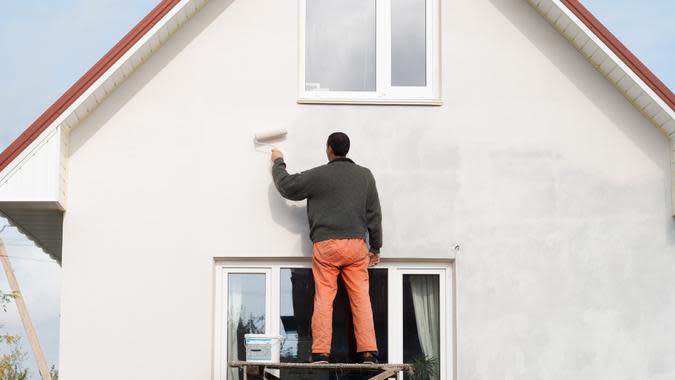
Repaint Exteriors
Additionally, pay attention to the state of your house paint, suggests Samantha Odo, a licensed real estate expert and the COO of Precondo. “Make sure the paint of the house is good and not chipping off. With the winter approaching, it will get more difficult to re-paint your home when it starts snowing. So, if you need painting work done, get it early on in the fall.”
While exterior house painting is not cheap — it can run between $1,000 and $6,000 or more depending on the square footage of your house, according to Home Advisor. But you could consider doing some of the work yourself. Plus, the longer you wait, accruing more paint damage, the more expensive the bid is likely to be.
Be Aware: 28 House-Flipping Rules You Should Never Break
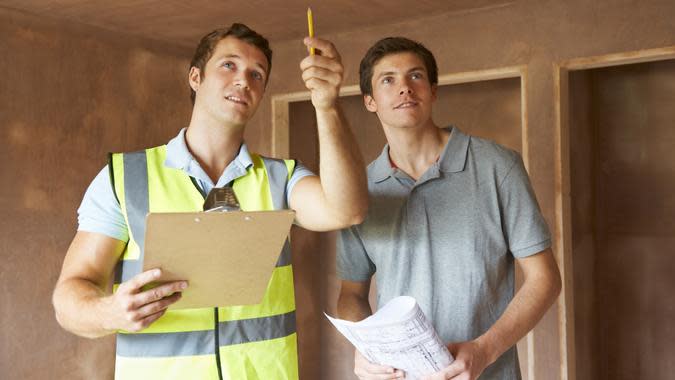
Get a Pest Inspection
If you haven’t done a pest inspection since you first bought your house, it’s probably time, said Mike Malone, pest and termite expert with Arrow Exterminators.
“Many homeowners believe that termites don’t exist simply because they can’t see them, however this is not the case as termites are most often present in a home well before they start to swarm. But once it begins, the damage occurs quickly,” he said.
In addition to an inspection, he recommends homeowners take the following steps to prevent termites:
-
Eliminate moisture around foundations.
-
Do not stack firewood or lumber near home.
-
Remove old tree stumps in the yard.
-
Keep tree branches and shrubbery well-trimmed and away from the house which will also help with inspections and finding termite infestations
-
Reduce humidity in crawl spaces with proper ventilation.
-
Have your home inspected annually by a licensed pest professional who specializes in termite control.
The cost of a termite inspection runs between $50 and $280, averaging around $100, according to Home Advisor.
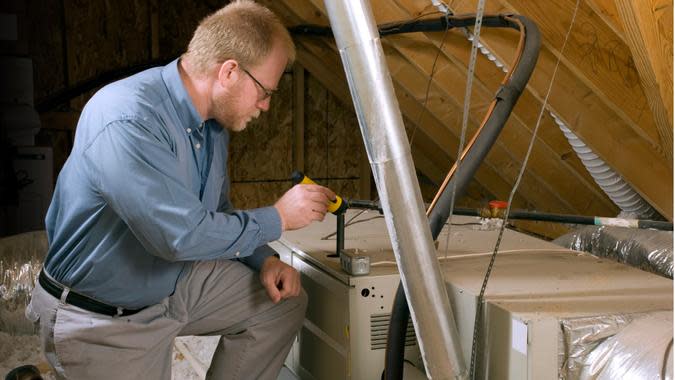
Check Your Furnace
If you have a furnace or heating unit, it’s important to check it before you begin using it in earnest. Jake Romano, with John the Plumber, recommends a furnace inspection and tune-up. “The receipts are proof that you’ve properly maintained your home and appliances, which should prove to any potential buyers that your home is likely in good shape.”
Even if you aren’t looking to sell, you’ll be glad your heating is working properly when the cold months blow in.
A furnace inspection and cleaning can run between $131 and $478, according to Home Advisor.
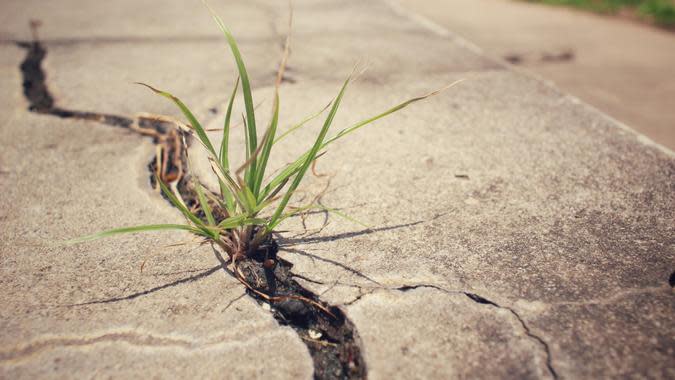
Seal Cracks in Driveway or Pathways
Check your driveway or paths for cracks and reseal them, said Raf Howery, CEO and founder of Kukun, which seeks to transform the home remodeling industry. “Reseal the cracks before winter sets in or else water from snow may freeze and expand in the cracks–causing more damage,” he said.
Dawn Templeton, real estate broker and owner of the Templeton Real Estate Group, adds, “Even the smallest cracks can turn into big ones when coming in contact with water. As a result, the concrete might crumble. This is why you need to be serious about fixing the cracks in your driveway.”
The average cost to seal your driveway is around $100 to $190, according to Home Guide.
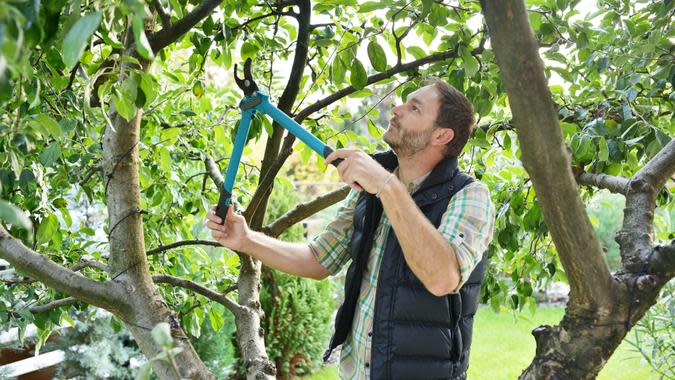
Prune Plants and Trees
Trees and bushes can rub up against your home, weigh down power lines and cause other forms of damage if not pruned. According to Jack Miles, owner of Sarasota Mold Pros, “It is best to prune plants and trees in late fall after the summer growth cycle has ended. Keep limbs and branches at least three feet away from your house to prevent moisture from dripping onto your roofing and siding. This will also prevent damage to the exterior of your house during high winds.”
If you hire someone else to do it, you can expect to pay between $315 to $700, according to Lawn Starter.
More From GOBankingRates
This article originally appeared on GOBankingRates.com: Seasonal Home Maintenance You Need To Do To Maintain Your Home’s Value
